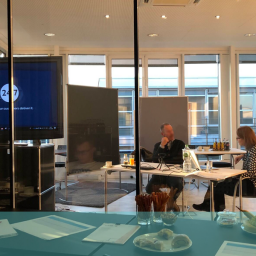
How cultural difference impact behaviour online
Previous readers of this blog will have had something of a brief introduction to cultural differences in online behaviour around the world. Any piece of this sort of length can only ever scratch the surface of the problem, but there are some basic classifications and projects that have helped to define the problem in more concrete forms and provide useful elements and indicators in constructing your own research projects for culturally diverse and dispersed markets.
Perhaps the most single useful insight on cultural differences came from the work of Geert Hofstede (the Dutch psychologist/anthropologist and management expert) mainly in the 1970s and 80s. He predicated that the cultural aspects of a society broke down broadly into four categories;
- Power distance – this is the extent to which the lower and poorer members of a culture accept the inequalities in that society.
- Uncertainty avoidance – this is measure of how far a society has programmed its members to avoid uncertainty and ambiguity and situations which might create these states.
- Individualism v collectivism – this is the degree to which individuals are expected to look after and be concerned about themselves and their immediate family rather than being integrated into a wider family group or social structure which provides protection and a sense of belonging and loyalty.
- Masculinity v femininity – simply this relates to the significance and impact of being born into a particular gender within a society and the consequences for the individuals.
These are suggested as the main factors which determine values and attitudes which, in turn, will strongly influence behaviour and actions. Two further dimensions have been added; these are long-term orientation and indulgence v restraint. In practical terms these relate to a society’s adherence to traditional rules and structures and the way it views pleasure and morality against a set of rules or a code.
There are other sets of characteristics that have been identified as determinants of cultural difference which might prove useful in defining and constructing research projects. The American anthropologist, E.T.Hall’s model is based on a more interwoven structure based around perceptions and social mores. His four dimensions were:
High and low context:
Where the amount of detail required to get a message over is determined by the degree and depth of social context that already exists. The French, for example, have a high context culture where little explanation of intent is needed.
Monochronic v polychronic time:
This relates to the ability to deal with more than one issue at a time and progress it quickly in a structured way. The Americans tend to be monochronic and like to focus on what is in front of them and get it done; the French will be much more relaxed and flexible.
High v low territoriality:
This is the extent to which societies value space and ownership of it Aboriginial cultures for example do not have any real concept of land ownership with all sharing and working together. Westernised cultures tend to be highly territorial and space aware. The Japanese (probably for very practical reasons) are much less aware of personal space.
Fast v slow messaging:
Messages transmitted in different forms and media will be conveyed fast or slow depending on the method. A newspaper headline or billboard is a fast message; a book or an academic treatise much slower. Many cultures are more used to one form over another; Western cultures have become bigger and bigger consumers of fast messages to the degree that carriers of slow messages like books and poetry have diminished in importance especially for younger generations. This factor also relates to the polychronic time and high/low context elements referred to above.
If you would like to talk to someone about this complex but fascinating subject or are interested in assessing its impact on a specific international market, contct us on +44(0)800 024624 or email us at hello@ux247.com.

















